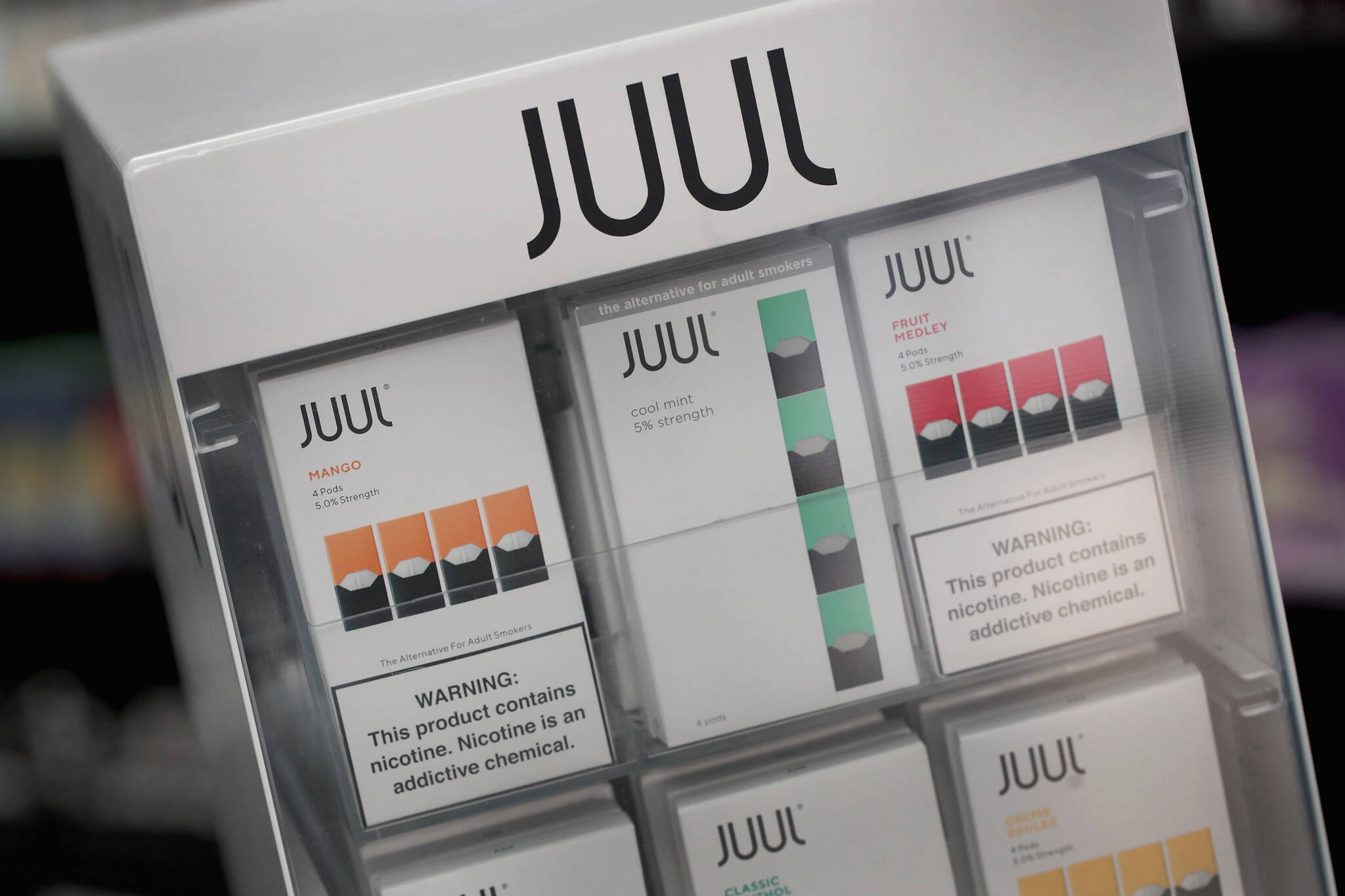Juul Labs Inc. products were banned for sale in the United States on June 23 by the U.S. Food and Drug Administration.
The e-cigarette products were banned after Juul did not provide requested information to the FDA about whether the products reached safety standards set by the law, causing the FDA to issue the marketing denial orders.
The FDA is now requiring that Juul stop selling and distributing products, as well as removing all products currently on the U.S. market, or risk enforcement action. Juul’s online store currently has all of its products marked as “out of stock.”
Health experts say they are thankful for the decision, as Juul devices were deemed “unsafe” by the Centers for Disease Control and Prevention.
Beth Ebel, a professor of pediatrics at the University of Washington School of Medicine said in a statement that she believes the Juul ban is a step toward better health, specifically for adolescents.
“The FDA has regulation now over e-cigarette products in general, and that means they’re finally getting a good, hard look at the risks and dangers of these products. There was such a steady reduction of smoking as people realized how harmful and damaging it was to the lungs, but with the e-cigarettes, they were really marketed as something that supposedly was safer. That has not been shown to be true,” Ebel stated in a press release.
An estimated 1 out of 5 high school students use e-cigarettes, according to a February 2021 study by The Journal of American Medical Association.
E-cigarette devices contain nicotine and other substances proven to be harmful to the human body. Approximately two-thirds of Juul users between the ages of 15-24 do not know that Juul contains nicotine, according to the CDC.
Not only do Juul pods contain nicotine, but according to the manufacturer, each pod contains as much nicotine as a pack of 20 regular cigarettes, the CDC states.
Ebel said nicotine is not the only harmful substance in vaping liquids or Juuls, but that even flavorings added to attract children are carcinogens, and are “getting deposited into the lungs and may not even come out.”
E-cigarettes also contain cancer-causing ingredients that alter the pathways of the developing brain that promote addiction and dependency later in life, Ebel stated.
“No parent would want this for their kid. And adults should be thinking hard about this product as well … pediatricians are seeing more kids who have a real dependency to e-cigarettes to the point where they can’t go to school without it.”
The CDC has also found that some e-cigarette liquids marketed to have 0 percent nicotine have been found to contain nicotine.
“I encourage parents to be knowledgeable, to be able to recognize and identify these products. Second, see your pediatrician. There is now a nicotine therapy that some kids have needed to be able to break this addiction. Know that almost every child who starts using these products in a daily fashion … they are still users today. That’s how powerful the dependency is,” Ebel said.
Why is nicotine unsafe?
Nicotine can harm a still-developing brain by damaging the parts of the brain that control attention, learning, impulse control and mood.
Nicotine is highly addictive.
Nicotine withdrawal can be harmful and cause anxiety, depression, irritability, restlessness, trouble sleeping or problems concentrating.



